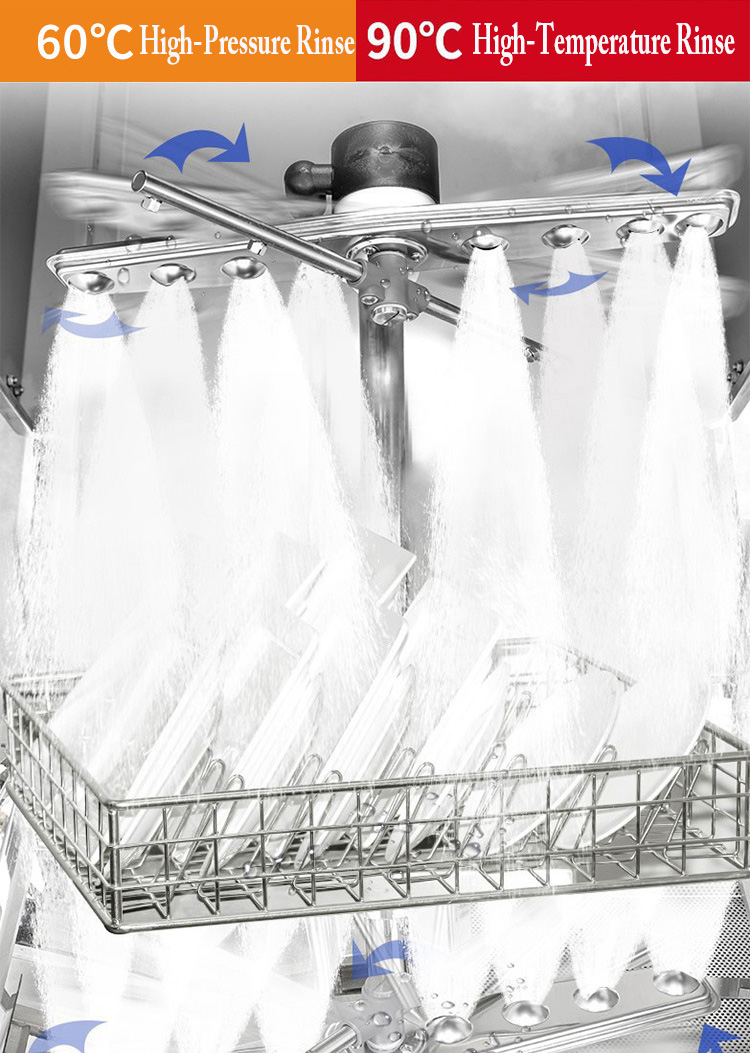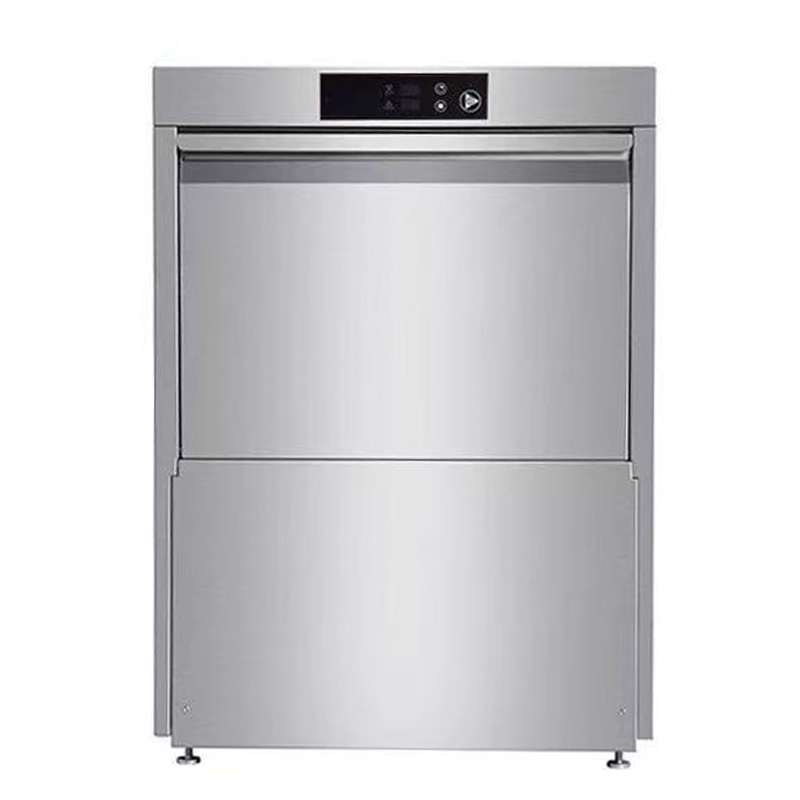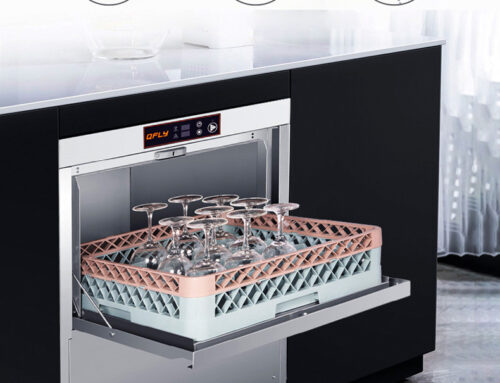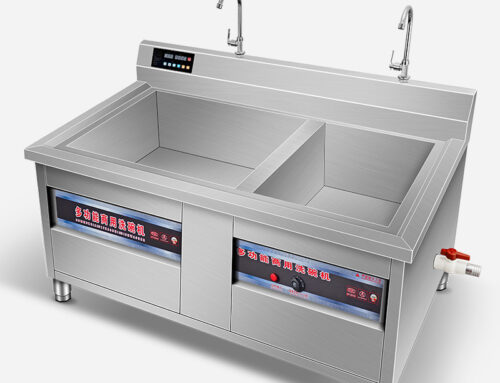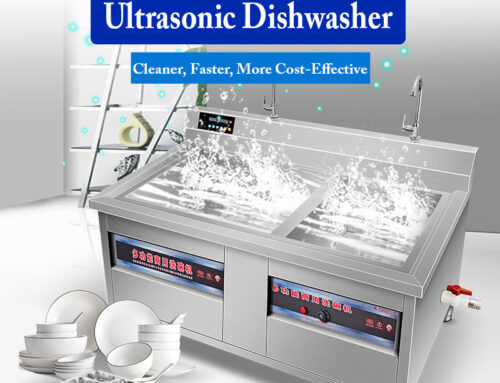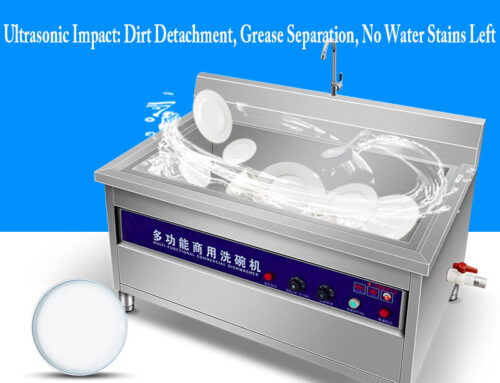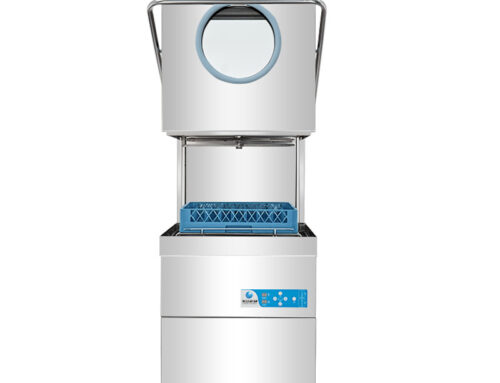What Certifications (NSF, UL, ENERGY STAR) Should a Commercial Dishwasher for Restaurant Have?
For restaurant owners, choosing a commercial dishwasher for restaurant isn’t just about capacity or price—it’s about ensuring the machine meets strict standards for safety, sanitation, and efficiency. Certifications like NSF, UL, and ENERGY STAR aren’t “nice-to-haves”—they’re critical for passing health inspections, avoiding electrical hazards, and reducing long-term utility costs. At AT Cooker, we design all our commercial dishwasher machine for restaurant models (like the ZFGT-A series) to meet or exceed key certifications, because we know compliance protects your business and your customers. In this guide, we’ll break down each essential certification, why it matters for your restaurant, and how AT Cooker’s commercial restaurant dishwasher models stack up.
Essential Certifications for Commercial Dishwasher for Restaurant Use
| Certification | Purpose | Why It Matters for Restaurants | AT Cooker Compliance |
|---|---|---|---|
| NSF | Sanitation & food safety | Required to pass health inspections; ensures dishes are bacteria-free | All models meet NSF sanitization standards (180°F final rinse) |
| UL/ETL | Electrical safety | Prevents electrical shocks/fires in busy kitchens | UL/ETL-certified heating elements & wiring |
| ENERGY STAR | Energy efficiency | Cuts utility costs (up to $1,000/year for high-use machines) | Models like ZFGT-A 4D meet ENERGY STAR efficiency criteria |
| EPA WaterSense | Water conservation | Reduces water bills; complies with local water restrictions | 0.66 gallons/rack (meets WaterSense standards) |
| CE | EU safety/health/environmental compliance | Mandatory for restaurants in the European Economic Area (EEA) | CE-marked models available for EU markets |
NSF Certification: Non-Negotiable for Restaurant Food Safety
The National Sanitation Foundation (NSF) certification is the gold standard for commercial dishwasher for restaurant sanitation. It verifies that the machine can remove bacteria (like Salmonella and E. coli) and meet strict health code requirements—critical for restaurants, where a single food safety violation can lead to closures, fines, or reputational damage.
What NSF Certification Requires for Commercial Dishwashers:
– Final rinse temperature of at least 180°F (82°C) to kill bacteria.
– No toxic leaching from materials (e.g., stainless steel, plastic parts) into food contact surfaces.
– Easy-to-clean design (no hidden crevices where food/bacteria can accumulate).
- The ZFGT-A 4D reaches 95°C (203°F) during the final rinse—well above the NSF’s 180°F requirement—ensuring dishes are fully sanitized.
- All food-contact parts (spray arms, racks, tank) are made from 304# stainless steel, which is NSF-approved for its resistance to corrosion and bacteria growth.
- The machine’s smooth interior design has no sharp edges or hidden gaps, making it easy to clean and inspect—critical for passing health department checks.
For restaurants, NSF certification isn’t optional. Most local health departments require it, and insurance providers may even offer lower rates for businesses using NSF-certified professional kitchen equipment. Skipping it risks failed inspections and lost revenue.
UL Certification: Electrical Safety for Busy Restaurant Kitchens
Underwriters Laboratories (UL) certification is essential for ensuring the electrical safety of your commercial dishwasher for restaurant. Restaurant kitchens are high-risk environments for electrical hazards—water, heat, and constant use can damage wiring or components. UL certification verifies that the machine’s electrical systems (heaters, pumps, controls) meet strict safety standards, preventing shocks, fires, or equipment failure.
- Insulation resistance: Ensures wires don’t short-circuit when exposed to moisture.
- Overload protection: Prevents motors/pumps from overheating if the machine is overloaded (e.g., too many racks).
- Grounding: Verifies proper grounding to reduce shock risk if components fail.
- A thermal cut-off switch that shuts off the heater if temperatures exceed safe levels—preventing fires.
- Waterproof electrical enclosures (IPX4 rating) that protect controls from splashes—critical for dishwashers used near sinks.
- Heavy-duty wiring rated for 380V 3-phase power (common in commercial kitchens) to handle high electrical loads.
Note: ETL (Intertek) certification is a widely accepted alternative to UL. It covers the same safety standards, so either is sufficient for most restaurants. AT Cooker offers both UL and ETL options to meet regional requirements.
ENERGY STAR Certification: Cut Utility Costs for Your Restaurant
ENERGY STAR certification is a game-changer for restaurants looking to reduce utility costs. A commercial dishwasher for restaurant runs 6-8 hours daily, making energy use a major expense. ENERGY STAR-certified models use at least 15% less energy and 20% less water than non-certified machines, according to the U.S. EPA—translating to $500-$1,000 in annual savings for high-use restaurants.
| Metric | Non-Certified Dishwasher | AT Cooker ZFGT-A 4D (ENERGY STAR) | Annual Savings |
|---|---|---|---|
| Energy Use (6 hrs/day) | 15,600 kWh/year | 13,416 kWh/year | 2,184 kWh |
| Energy Cost ($0.15/kWh) | $2,340 | $2,012.40 | $327.60 |
| Water Use | 31,200 gallons/year | 17,160 gallons/year | 14,040 gallons |
| Water Cost ($0.01/gallon) | $312 | $171.60 | $140.40 |
| Total Annual Savings | — | — | $468 |
ENERGY STAR certification also makes your restaurant eligible for rebates from utility companies (up to $1,000 in some regions)—further offsetting the initial cost of your commercial dishwasher for restaurant.
EPA WaterSense Certification: Conserve Water & Lower Bills
EPA WaterSense certification recognizes commercial dishwasher for restaurant models that use 20% less water than standard machines. For restaurants—where dishwashers can use thousands of gallons monthly—this certification isn’t just eco-friendly; it’s a financial necessity, especially in regions with water scarcity or high water rates (e.g., California, Arizona).
- Under-counter models: Maximum 0.8 gallons of water per rack.
- Door-type models: Maximum 1.0 gallons per rack.
- Conveyor models: Maximum 1.2 gallons per rack.
- No sacrifice in cleaning performance—machines must still meet NSF sanitization standards.
- Low-flow spray arms that deliver targeted water pressure to clean dishes without wasting water.
- Automatic water filling that stops once the tank reaches the optimal level (no overfilling).
- A recirculation system that filters and reuses water for pre-rinsing (on select models).
For a restaurant using 100 racks/day, this means saving 14,040 gallons of water annually—enough to fill 22 standard bathtubs.
CE Marking: Mandatory for Restaurants in the European Economic Area
CE marking is a legal requirement for any commercial dishwasher for restaurant sold in the European Economic Area (EEA)—including EU countries, Norway, Iceland, and Liechtenstein. It verifies that the machine meets EU standards for safety, health, and environmental protection—covering everything from electrical safety to chemical emissions.
- Compliance with the Low Voltage Directive (LVD): Ensures electrical safety (similar to UL).
- Compliance with the EMC Directive: Prevents electromagnetic interference with other commercial kitchen equipment (e.g., refrigerators, ovens).
- Compliance with the RoHS Directive: Restricts hazardous substances (lead, mercury) in materials—protecting staff and the environment.
- EMC filtering to reduce interference with nearby equipment.
- RoHS-compliant components (no lead in solder, no mercury in sensors).
- Compliance with EU safety standards for door locks (prevents accidental opening during cycles).
These models also come with a Declaration of Conformity—required documentation for passing EU health and safety inspections.
Other Important Certifications for Commercial Dishwashers
- CSA (Canadian Standards Association): Mandatory for commercial dishwasher for restaurant use in Canada. It covers electrical safety, sanitation, and environmental standards—similar to UL and NSF. AT Cooker offers CSA-certified models for Canadian restaurants, ensuring compliance with the Canada Occupational Health and Safety Regulations (COHSR).
- RoHS (Restriction of Hazardous Substances): Ensures your commercial dishwasher machine for restaurant doesn’t contain lead, mercury, cadmium, or other toxic substances. This is important for eco-conscious restaurants and staff health—exposure to these substances can cause long-term health issues. All AT Cooker models are RoHS-compliant.
- ASTM (American Society for Testing and Materials): ASTM standards apply to specific components of your dishwasher, like stainless steel (ASTM A240 for 304# steel) and glassware safety. AT Cooker uses ASTM-certified 304# stainless steel for all food-contact parts, ensuring durability and safety.
- ISO (International Organization for Standardization): ISO 9001 certification (quality management) indicates that the manufacturer follows strict quality control processes. AT Cooker’s manufacturing facilities are ISO 9001-certified, meaning every commercial restaurant dishwasher is built to consistent, high standards.
- ADA (Americans with Disabilities Act): For restaurants with disabled staff, ADA compliance ensures the dishwasher is accessible (e.g., easy-to-reach controls, low-height models). AT Cooker offers ADA-compliant undercounter models with front-facing controls and a height of 34 inches—ideal for wheelchair users.
- Local Health Department Certifications: Some regions have additional requirements (e.g., specific water temperature limits, noise restrictions). AT Cooker provides detailed spec sheets and test reports to help you comply with local rules—simply share them with your health inspector.
- Green Restaurant Association (GRA) Certification: A voluntary certification for environmentally conscious restaurants. GRA-approved high-end kitchen equipment and gadgets, like AT Cooker’s energy-efficient dishwashers, can help you earn GRA points—attracting eco-focused customers.
How to Verify Certifications for a Commercial Dishwasher for Restaurant
Don’t just take a manufacturer’s word for it—verify certifications with these steps:
- Check the machine’s label: Certifications like NSF, UL, and CE should be printed on the unit (usually near the power cord or control panel).
- Request documentation: Ask for a Declaration of Conformity (for CE) or NSF Test Report—reputable brands like AT Cooker will provide these for free.
- Search certification databases: Use NSF’s Certified Products Database or UL’s Product iQ to confirm compliance.
Conclusion: Choose a Certified Commercial Dishwasher for Restaurant Success
Certifications like NSF, UL, and ENERGY STAR are non-negotiable for any commercial dishwasher for restaurant. They protect your customers (NSF), your staff (UL), and your bottom line (ENERGY STAR/WaterSense)—while ensuring compliance with local, national, and international rules. At AT Cooker, we design our commercial dishwasher machine for restaurant models to meet or exceed these certifications, because we know your restaurant’s success depends on reliable, compliant equipment.
Whether you need an NSF-certified model for food safety, an ENERGY STAR-compliant unit for cost savings, or a CE-marked dishwasher for the EU market, AT Cooker has you covered. Our ZFGT series—including the ZFGT-A 4D and ZFGT-A 90S—combines certification compliance with durability (304# stainless steel), efficiency (0.66 gallons/rack), and ease of use (simple controls for busy staff). We also work with kitchen equipment supplier partners worldwide to deliver certified models to your door.
Ready to invest in a certified commercial restaurant dishwasher? Contact AT Cooker today to learn more about our certified models and how they can help your restaurant stay compliant, safe, and efficient. With 20 years of experience in stainless steel commercial kitchen equipment, we’re your trusted partner for restaurant success.
